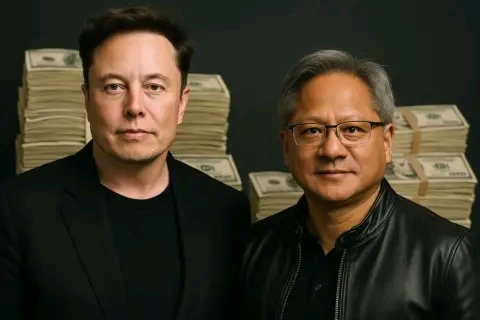CELEBRITY
US$1 trillion pay package for Elon Musk Proposed Compensation at Tesla, Inc. — covering the key facts, the arguments for and against, what it could mean for Tesla and its shareholders, and what comes next: CHECK IT OUT HERE 👇👇

$1 Trillion Pay Deal for Tesla CEO
Musk’s proposed compensation at Tesla, Inc. has drawn strong criticism from labour unions and governance groups, as the package could reach up to US$1 trillion if shareholders approve it. 
Musk’s $1 Trillion Pay Deal: A Bold Move With Big Stakes
Tesla’s board has proposed an unprecedented compensation plan for its CEO, Elon Musk, that could be worth up to US$1 trillion, contingent on a long list of ambitious performance milestones and safeguards.
The vote on this package is scheduled for the annual shareholder meeting in early November 2025.
Here are the essentials:
The plan would grant Musk stock-options in 12 tranches, tied to reaching goals such as a market capitalisation of $8.5 trillion, deployments of autonomous vehicles and robotics.
The board presents the deal as necessary to align Musk’s incentives with long-term shareholder value and to retain his leadership for years to come.
Proxy advisory firms and many investor watchdogs are opposed, arguing the scale of the pay is unprecedented, the performance targets may not assure value, and governance is weak.
—
Why Tesla Says It’s Justified
Tesla’s leadership argues several key points in favour of the package:
1. Keeping Musk onboard: The board chair, Robyn Denholm, has emphasised that Musk’s vision and “time, talent and vision” are critical to Tesla’s future in autonomous driving and robotics — and that without such a structured compensation plan, Musk might seek other ventures.
2. Aligning rewards with performance: The pay isn’t a flat salary—it’s heavily performance-based. If Musk doesn’t deliver, he receives nothing. The board says the plan aligns his interests with shareholders.
3. Ambitious growth goals reflect Tesla’s mission: Supporters say that for Tesla to become a global leader in EVs, AI, robotics, it requires bold targets—and Musk is uniquely positioned to pursue them.
—
Why Many Are Alarmed
Despite the board’s pitch, critics raise serious concerns:
Scale and dilution: A package of this magnitude risks diluting existing shareholders and escalating Musk’s control over Tesla. For example, one advisory firm notes the deal could raise Musk’s stake significantly.
Questionable performance targets: Some of the milestones are seen as extremely ambitious—or even unrealistic. For instance, one cited goal is commercial operation of 1 million “robotaxis”, which many analysts say is far from proven.
Governance risks: The independence of Tesla’s board, its relationship with Musk, and past legal rulings (including voiding the 2018 compensation deal) all feed worries about whether the package was negotiated and overseen properly.
Opportunity cost: Critics say resources used to fund such a massive pay-package might instead be used for research & development, acquisitions, or other shareholder-friendly investments.
—
What It Means for Shareholders & Tesla’s Future
Leadership continuity: If approved, the deal increases the odds Musk stays on for a long haul—but it also means he retains enormous influence over the company’s direction. The board suggests the company is at a pivot point where Musk’s leadership matters more than ever.
Shareholder value hinge: Because the pay is performance-based, shareholders will ultimately ask: “Will Tesla hit these stretch targets, and will we get commensurate value?” If not, they may regret the dilution and risk.
Market signalling: Approving a $1 trillion pay deal sends a strong message to the market—either about confidence in Tesla’s future (if the deal passes) or about potential governance weakness (if it passes despite criticism).
Precedent setting: If Musk is granted such a package, it could redefine senior executive compensation norms in high-growth tech/auto industries, for better or worse.
—
What’s Coming Next
Shareholder vote: The key event is the annual meeting, where shareholders will vote on this plan and re-elect board members who are closely tied to Musk. Proxy firms like Institutional Shareholder Services (ISS) have already recommended that investors vote against the deal.
Potential legal/regulatory scrutiny: Given past outcomes (e.g., the 2018 compensation package being voided), legal challenges may follow—especially if shareholders approve despite strong opposition.
Execution risk: Even if approved, meeting the targets (market cap of $8.5 trillion, robotaxi fleet of 1 million, etc.) will be extremely challenging. Critics argue Tesla’s ability to deliver remains to be proven.
Corporate governance and board oversight: Pressure will mount for the board to demonstrate greater independence, clearer oversight and stronger accountability, especially if the compensation deal is controversial.
Final Take
The proposed $1 trillion compensation package for Elon Musk at Tesla is nothing short of historic. It underscores the board’s bold ambition—not just for Musk, but for Tesla’s future in EVs, AI and robotics. At the same time, it raises serious questions about governance, fairness and the realistic prospect of achieving the targets.
For shareholders, the decision is weighing the potential upside (if Musk delivers and Tesla transforms) against the risks (dilution, governance erosion, unmet promises). Either way, Tuesday’s vote will likely reverberate not just at Tesla—but far beyond.
🧠 Key question for you: If you were a Tesla shareholder, would you vote for or against the pay package—knowing the risks and rewards?











